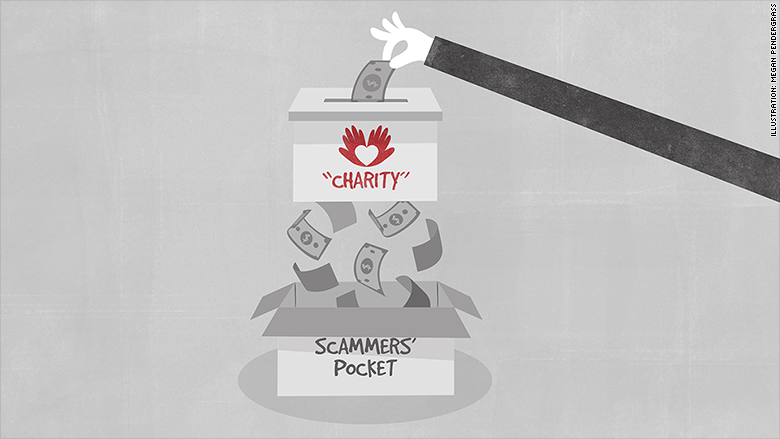
Taking advantage of your goodwill and pocketing your donations is Mission No. 1 for fake charities.
The IRS on Friday warned taxpayers not to be suckered into giving money to any group until confirming it is legitimate.
Fake charities often take a name that sounds very similar to well-known charities, and even make their websites look similar.
The IRS recommends using its Select Check tool, though it is not the most user-friendly if you only have the name and location of the group. As a back-up, you can also look up the organization on Charity Navigator.
Never give out your personal financial information, such as your Social Security number, to anyone asking for money, the IRS warned. And if you're going to make a donation using your credit card, only do so with an organization you know and trust.
Also, never give or send cash - which is catnip for scammers. If you want to make a tax-deductible contribution, it's better to pay by check or credit card, so you have a record of the payment. The charity should also send you a receipt of your donation.
And if you want to give money to help victims of a natural disaster, be extra cautious about who gets your donation. Scammers claiming to represent a (bogus) charity may phone or email you to ask for money or financial information, the IRS said. "They may even directly contact disaster victims and claim to be working for or on behalf of the IRS to help the victims file casualty loss claims and get tax refunds."
